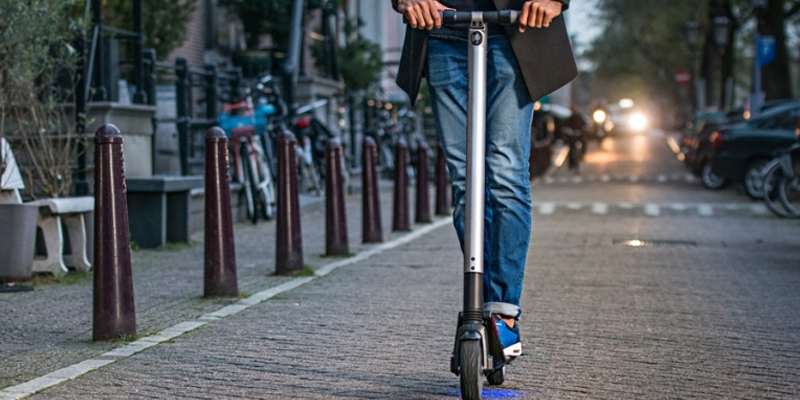E-scooter trials could see the UK move beyond EU rules
As the UK fast-tracks the e-scooter trials, the new regulation just being tested could lead to a more generous classification of light electric vehicles than applied across the EU. It could see not only e-scooters but also light electric mopeds without type-approval being allowed.
* * *
Until very recently, the UK was taking a notably different stance to continental Europe on the issue of micro-mobility. Where European capitals have long since introduced the light electric vehicles and already been through the inevitable trials necessary to initiate usage that was acceptable for other street users and residents, the Isles had banned the electric kick scooters from its roads.
That was to change with trials in four designated future transport zones, which have since been opened to all regions in the country. The government speeding up the e-kick-scooter trial process by a year and widening it to the entire country happened against the backdrop of the Covid-19 crisis. The idea is to increase micromobility, cycling and walking – fast.
The trials now getting underway are to ensure that electric kick-scooters are safe for use on roads. However, with any region free to take part and “to help support the green restart of local travel, trials should be operational as soon as possible,” according to the latest announcement. This news then included “necessary changes to legislation,” which came into force on 4 July 2020. And, you could call some of these changes sweeping.
To start with something less surprising, the government proposes to regulate rental e-scooter tests as similar as possible to electrically-assisted pedal cycles – the EU calls these EPACs. Westminster reckons that in many ways, e-scooters have the same road presence to these pedelecs and cycles. During the trials, they will, therefore, allow e-scooters to use the road (except motorways) and cycle lanes and tracks, where possible. As with EPACs, a helmet is not mandatory.
However, for the time being, the e-scooters should continue to be categorized as motor vehicles, the trial period will be used to investigate whether they should have the same legal status as EPACs permanently. So, for now, users must have a motor vehicle insurance and at least an AM driving license. However, that could ultimately lapse, reckons the Light Electric Vehicle Association, LEVA. Already the government proposes to exempt trial e-scooters from vehicle registration and licensing (vehicle excise duty). This would then also exempt trial e-scooters from the requirements for vehicle type approval.
LEVA points out that here “the UK has decided to put aside European legislation and set its course”. For example, the e-scooters may have a motor with a maximum continuous rated power of 500W – EPACs usually are limited to 250W in the EU or 350W in the UK. Also, the e-scooters in the UK view must not weigh more than 55 kg, battery included, and not exceed 15.5 mph (that is slightly faster than the EU’s 25 kph). And, there is the provision that the e-scooters may have a saddle.
In the EU, e-scooters with saddle are in the scope of the L category and must, therefore, be type-approved as L1e-B “moped”. As a result of the British decision, not only e-scooters with a saddle without type approval are allowed on the road, but also all other two-wheeled vehicles that need to be type-approved in the EU, insofar as their speed, power and weight are limited, and they don’t have pedals.
For LEVA, this is a welcome development that could open the way for more light electric vehicles to be removed from the L1 category that requires type-approval and other hurdles that make access harder. For example, the 250W restriction for pedal-assist bikes hits cargo e-bikes hard that could use the extra power without getting necessarily faster.
In the UK, it remains to be seen now, what the trials will bring. The government expects that they will commence at the end of August 2020 and run for twelve months “with the trial period beginning in each area as and when e-scooters become available to the public”. The country will then decide in 2021 which legislation to apply or how to amend it.
gov.uk (guidance for e-scooter trials), leva-eu.com





6 Comments